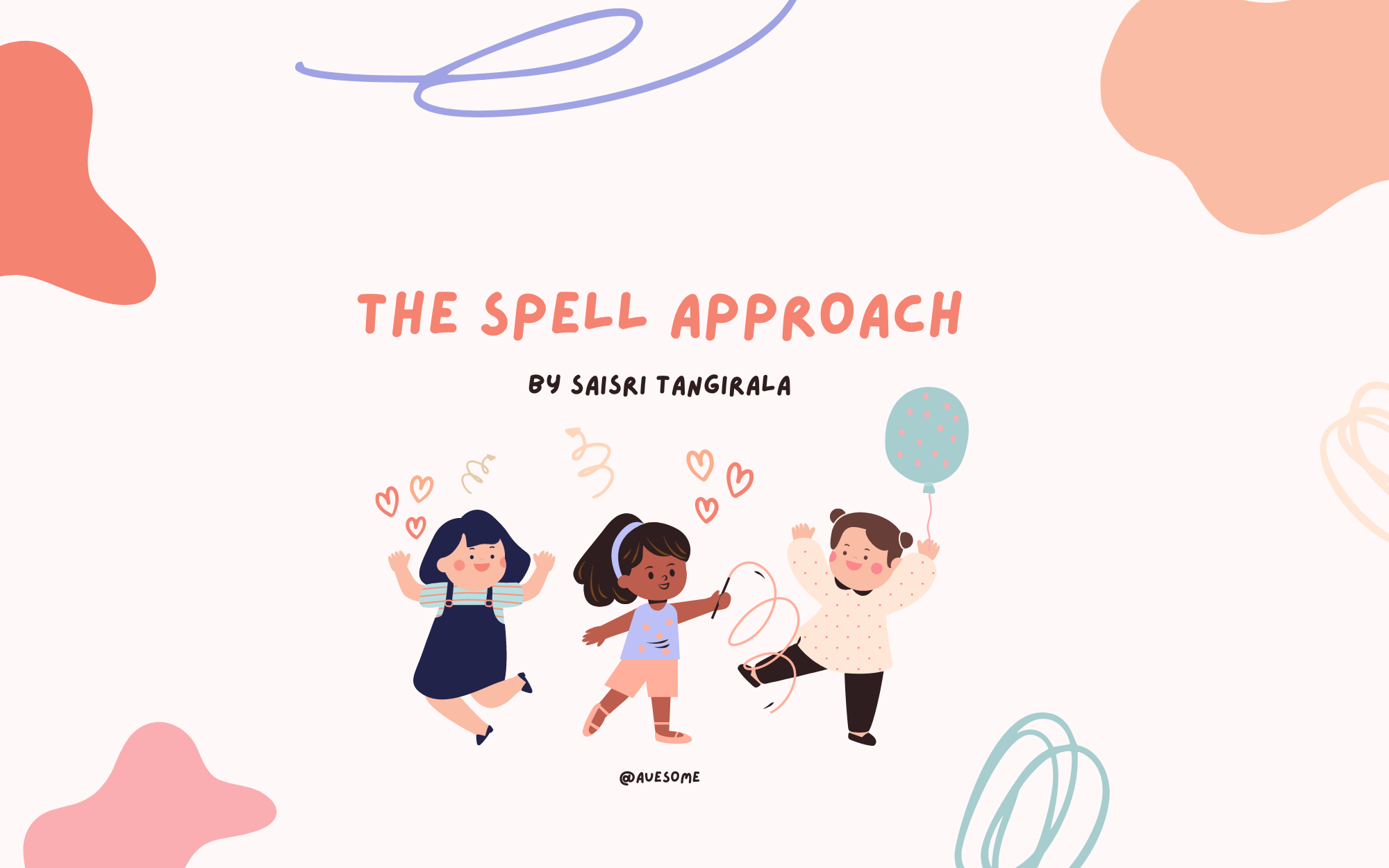The SPELL Approach to Therapeutic Activities
February 2023 • written by Saisri Tangirala

The SPELL Approach
Children on the spectrum often have different approaches to social interaction, communication, and repetitive behaviors, which can make it challenging for them to succeed in traditional educational and employment settings. However, with the right support and intervention, children with autism can develop the skills they need to lead fulfilling lives.
One approach that has proven effective in supporting children on the autism spectrum is the SPELL (Strategic Play and Experiential Learning for Leaders) approach. This program, developed by the National Autistic Society in the United Kingdom, uses a combination of theory, practical activities, and group work to help children on the autism spectrum improve their leadership skills and employability. AUesome has combined some ways that the SPELL approach can be used to support children on the autism spectrum:

- Provide a supportive environment: Creating a supportive and understanding environment is key to helping children on the autism spectrum feel safe and confident. This can be achieved by using visual aids, having a clear structure for activities, and avoiding sudden changes in plans or routines. By creating a predictable and supportive environment, children on the autism spectrum are able to focus on their learning and development, rather than feeling overwhelmed or stressed.
- Use experiential learning: Experiential learning is an approach that uses hands-on activities and real-life scenarios to help children on the autism spectrum develop their skills. This approach helps children understand the practical applications of what they are learning and can make the information more memorable. For example, role-playing exercises can be used to help children on the autism spectrum practice their social skills, while hands-on activities can help them develop their problem-solving and critical thinking skills.
- Focus on strengths: Emphasizing the strengths and abilities of children on the autism spectrum is important for building their confidence and encouraging them to develop new skills. By focusing on what they can do well, rather than their weaknesses, children on the autism spectrum are able to see themselves as capable and competent individuals. This can help to boost their self-esteem and motivation to continue learning and growing.
- Encourage teamwork: Working in small groups is an important part of the SPELL approach, as it helps children on the autism spectrum develop their social skills and build relationships with others. By working together on projects and activities, children on the autism spectrum are able to practice their communication and collaboration skills, which can be particularly challenging for them. Encouraging children on the autism spectrum to work together in a supportive and understanding environment can help to build their confidence and social skills.
- Use positive reinforcement: Positive reinforcement is an important part of the SPELL approach, as it helps to motivate children on the autism spectrum to continue developing their skills. This can include verbal praise, stickers, or rewards for effort. By recognizing their accomplishments and efforts, children on the autism spectrum are able to see that their hard work is paying off and that they are making progress. This can help to boost their self-esteem and motivation to continue learning and growing.
The SPELL approach can be a valuable tool for supporting children on the autism spectrum. By providing a supportive environment, using experiential learning, focusing on strengths, encouraging teamwork, and using positive reinforcement, children on the autism spectrum can develop the skills they need to lead fulfilling lives. It's important to remember that each child on the autism spectrum is unique and may respond differently to different approaches. However, by being flexible and adapting the SPELL approach to meet the needs of each individual child, educators and caregivers can help children on the autism spectrum.
